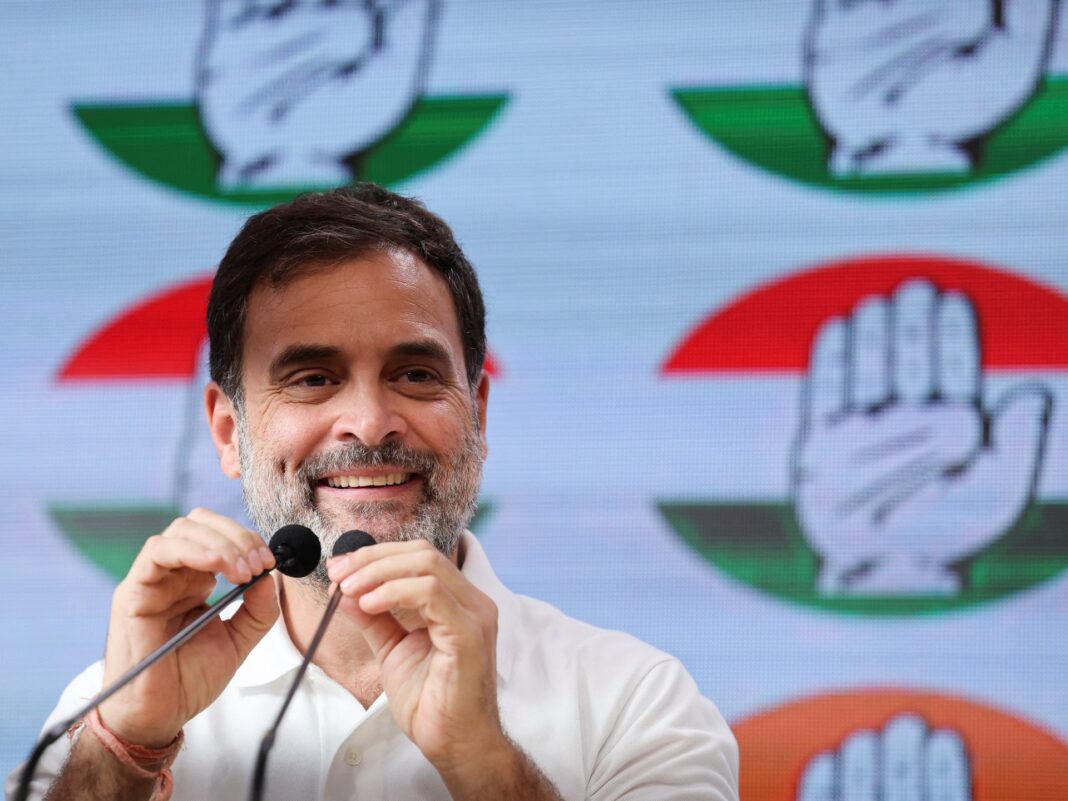Gandhi’s Congress party’s election results defied analysts’ expectations, and helped rehabilitate his political career.
Rahul Gandhi, scion of the Nehru-Gandhi family that governed India for decades in the wake of independence, has been nominated to lead India’s opposition in parliament following an election result that pulled his party back from the political wilderness.
A meeting of the leadership of Congress – the leading opposition party in the country – on Saturday voted unanimously to recommend Gandhi’s election as India’s official opposition leader. The role had been left vacant since 2014.
“All participants unanimously passed the resolution that Rahul Gandhi should take the position of leader of opposition in the parliament,” General Secretary KC Venugopal told a news conference after a meeting of the party’s executives.
The nomination will be put before a meeting of the 232 lawmakers belonging to a Congress-led opposition alliance later on Saturday.
On Tuesday, India’s governing BJP lost its majority in the chamber in an election that defied exit polls and shocked many supporters of Prime Minister Narendra Modi.
The BJP will still form the next government, but it will, for the first time in its 10 years in leadership, be reliant on a clutch of regional partners under its National Democratic Alliance (NDA).
Modi is set to be sworn into office for a third term on Sunday.
‘Voters have punished the BJP’
The six-week election saw 640 million voters head to the polls across India. It also saw Congress nearly double its parliamentary numbers, its best result since Modi swept to power a decade ago.
The comeback has aligned with Gandhi’s, who faced an embarrassing loss of his seat representing the city of Amethi in Uttar Pradesh in 2019. This year, he won the two districts he contested, Rae Bareli in Uttar Pradesh and Wayanad in Kerala. He will eventually have to choose which one to represent.
At the heart of Gandhi’s campaign efforts were long marches undertaken across the length and breadth of the country to galvanise support against Modi.
Aiyshwarya Mahadev, a spokesperson of the Indian National Congress, hailed the marches as the largest attempt the Congress party has undertaken in recent years to connect to the masses across the diverse country.
“We wanted to hear the voices on the ground and give them a voice. So during both the yatras [marches], we saw Rahul Gandhi listening to voices that hardly ever get heard, of people from communities that have been traditionally oppressed and marginalised,” she told Al Jazeera in March.
She added that the marches were “not about political pomp or any chest thumping” but were “about reaching the people on the ground, hearing their voices and becoming their voices”.
Gandhi is the great-grandson of Jawaharlal Nehru, India’s first prime minister following independence in 1947. His grandmother, Indira Gandhi, and father, Rajiv Gandhi, also served in the role, while his mother has long been a top official for Congress.
Support for the younger Gandhi was on full display following Tuesday’s vote count, with several people seen sporting white T-shirts with photos of Gandhi on the back at the party’s headquarters in New Delhi.
“Voters have punished the BJP,” Congress leader Gandhi told reporters after the election results. “I was confident that the people of this country would give the right response.”
“BJP has failed to win a big majority on its own,” Congress lawmaker Rajeev Shukla told reporters at the time. “It’s a moral defeat for them.”
Reduced mandate
But the surge in opposition seats are not the only factor set to transform India’s legislature and how laws are passed in the country of 1.4 billion people.
Modi is currently staring down a reduced mandate, with analysts arguing that the allies he must depend on to maintain power may also serve as a check on his government.
Critics have long accused the majority-BJP government of ramming laws through parliament without discussions and debate.
That will not be easy any more, Sandeep Shastri, the national coordinator of the Lokniti Network, a research programme at the New Delhi-based Centre for the Study of Developing Societies (CSDS), previously told Al Jazeera.
“It is going to be a much tougher ride in the parliament, very clearly, for the BJP.”







